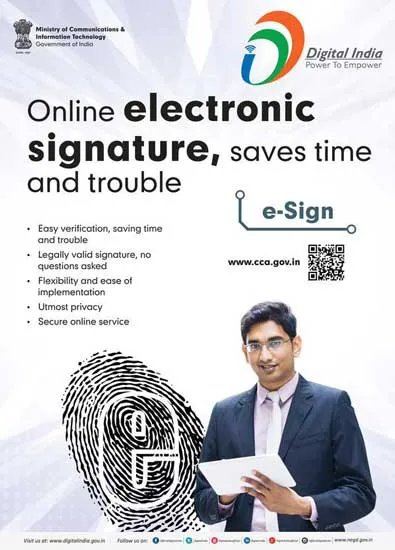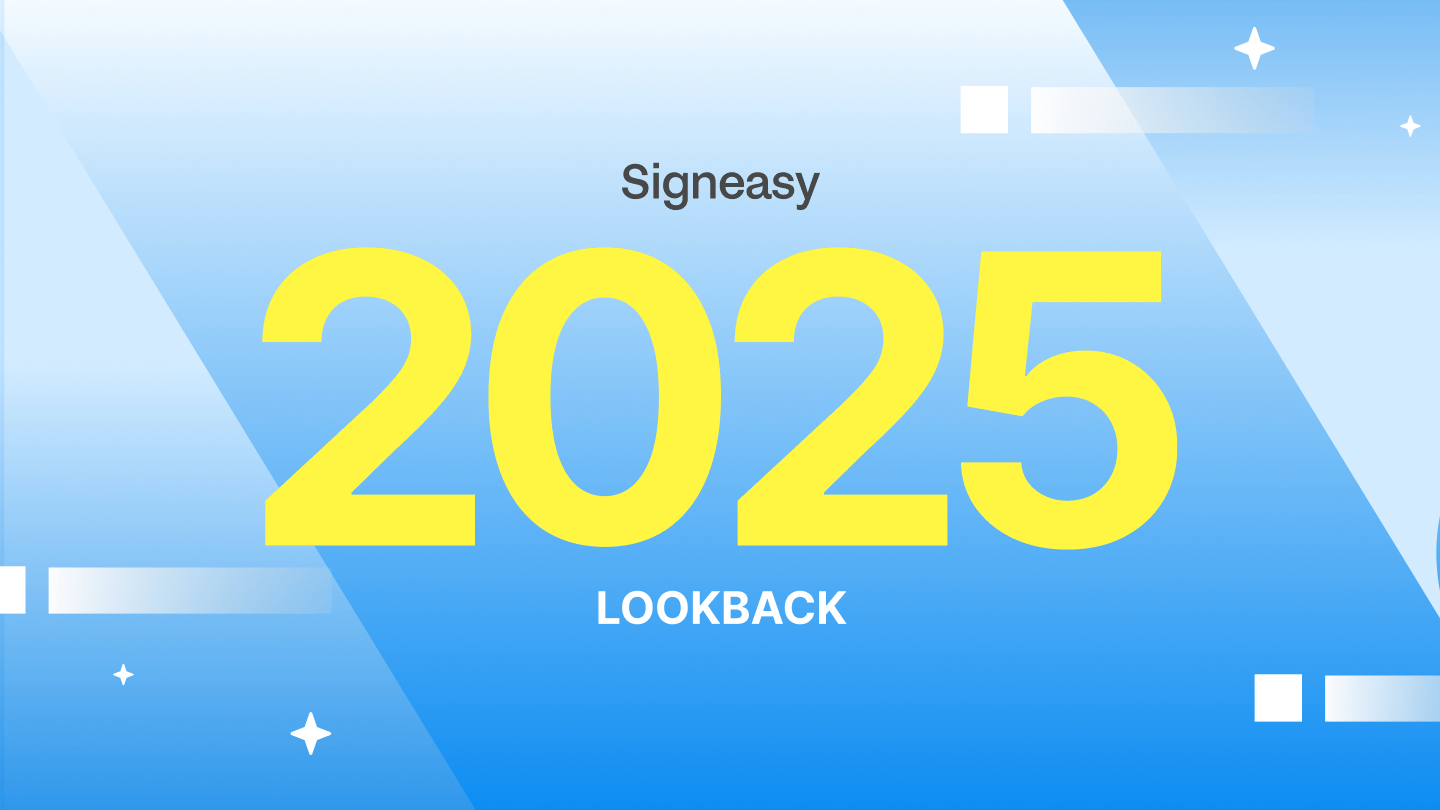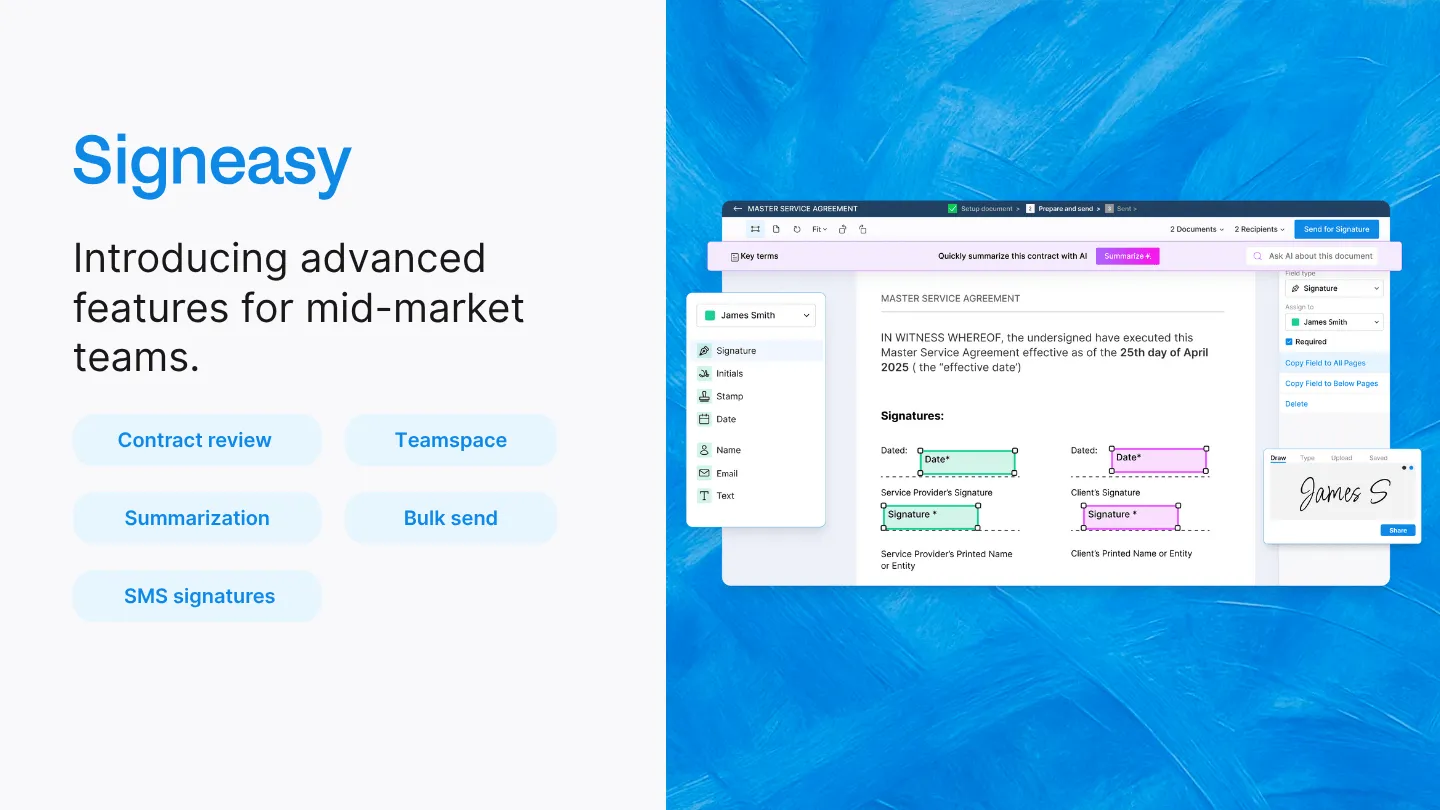The Prime Minister of India announced last week what he called the Digital India Vision, a future in which India connects citizens and ground level innovation with digital gateways. The aim is to make governance, national programs and information simpler for India's citizens. And part of the presentation included a reference to eSigning as a means to save time and make life simpler for the average Indian.

Image Source as @MIB_India
This is a proud moment for us. We are right now the leading Indian company to be able to provide an eSignature solution, akin to digital signatures, to the world. The fact that we foresaw this shift and have been working on this for the last five years gives us immense pride. And this is what the industry calls 'validation', when your concept is proved and appreciated in the real world.
But then, why is eSignature, a mere digital electronic signature, so important in this vision of a Digital India?
It is extraordinarily important, and I'll tell you why.
- Ease of Use
eSignatures are easy to grasp and use, as has been shown by several of the organisations and individuals who have taken to it in the last few years. It shows eSignatures as the ideal gateway for small towns and rural population to personalised services that will help make India a digital nation. The fact that signatures are one of the most ubiquitous and important acts in day-to-day business and trade make it the perfect starting point for people who wish to use it. Any more initiatives on the digital front by the government have to take care of ownership and legal issues of copyright. eSignatures are the base for any and all these initiatives. - Versatility
eSignatures, aided mostly by apps on smartphones that dominate internet access in India, can be accessed and used from anywhere in the country, as long as there’s a phone connection. As of September 2014, India has 930 million mobile phones, and it is adding more at the rate of more than 5 million a month. Even if we take away half this number as not being ‘smartphones’, this means that the reach and scope of this technology is deep. It can bring about a real change in the way rural India goes about its business. No important transactions or negotiations need to be stalled anymore because an important stakeholder is travelling or is unable to fax across documents. - Legal
The US government recognised eSignatures as equally binding as ‘wet Signatures’ in 2000 and India followed suit in 2008. What makes eSignatures even better at times than normal signatures on paper? The fact that though normal signatures can be forged, eSignatures can’t be. Every digital act will leave a footprint that can be traced right back to a probable miscreant. Every eSignature can be checked and cross checked to have come from a specific individual. This makes the system more or less foolproof. - Ideal for Modern Businesses
In this time of internet businesses and the unbundling of entrenched sectors, we need technology that can not only do its job well, but also be able to integrate with other technologies and services that together might give a use even more convenience. According to the Aberdeen Group, businesses that employ electronic signatures in B2B sales cycles see customer retention improve by 6.4% annually. This is a very significant number. And most eSignature services are compatible with all of the other internet services you use including Dropbox, Google, Box, Slack and so on. The result is a seamless experience that wastes no time at all for the modern businessman, driving up sales and profitability. - Affordability
The bottom-line in a market like India is how much this is going to cost individual users and SMBs. Because overcoming barriers to change is only possible when the price point for a new product is inviting enough for a user to consider. On this front as well, eSignatures come up trumps, as most of these products, including our product Signeasy, start from as little as INR 300, which is as cheap as they come for technology of this much value.
We have seen organizations use innovative paperless solutions in India. ICICI, one of the leading private sector banks, have adopted "Tab Banking" to open a new account. Their officers visit homes and offices to scan the necessary documents such as photographs and KYC documents. This is an important step towards helping customers avoid the need to send signed paperwork. Even though with Tab Banking signatures are not required on the KYC documents, there is still the requirement for signing on a particular form that is tied to the bank account.
The future is not far away where the officer neither has to visit the doorstep of customer nor the customer visit the bank. With eSignatures, the customers can sign and send the necessary forms to the bank themselves. Imagine the number of hours saved by the people and bank, the trips that can be avoided, and the ultimate gain in efficiency. This can be achieved on a grander scale. For example, SBI processed more than 70 million new accounts opened in 2013-2014 AY. All of those account opening processes could move to eSigning instead of physical signatures.
The push that the Government of India is giving to eSignatures is mostly about starting at a point where it is easy for the people to congregate and start using technology. It is a sound, well thought out move that could pay dividends in the future as we look towards building a digital nation.










